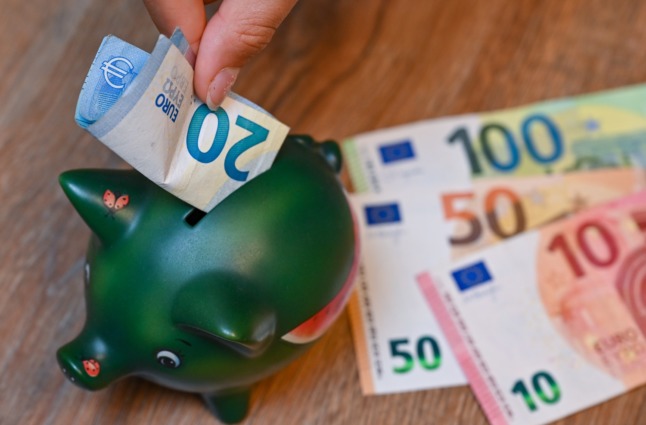A new study sheds some light over how much working from home pushes up the cost of electricity bills.
Since the start of the Covid-19 pandemic in March 2020, lots of workers have been doing ‘home office’ instead of going into their office, to help control the spread of infections.
Spending more time at home means you consume more electricity. But how much more expensive is it? Experts from a comparison portal have done the maths.
While working from home, an employee’s electricity bill can increase by around up to €94 a year, says comparison portal Check24.
READ ALSO: How households in Germany can tackle rising energy costs
According to their calculation, the use of a laptop, monitor, desk lamp, kettle or coffee machine and the use of an electric cooker or microwave oven result in additional costs of around 25 to 43 cents per day.
For the calculation, researchers assumed that:
- An employee, minus holidays and public holidays, works 220 days a year from home and pays an average price of 33.9 cents per kilowatt hour of electricity
- During this time, they operate a laptop for eight hours a day (0.12 kWh), a monitor (0.24 kWh) and an LED desk lamp (0.056 kWh)
- They also use a kettle (0.33 kWh) or a coffee machine (0.25 kWh) for 10 minutes and an electric cooker for half an hour at lunchtime (0.5 kWh)
or a microwave for five minutes (0.066 kWh)
When it comes to phone charging, experts say it doesn’t make much of a difference to household bills. “Charging a smartphone barely plays a role in the additional costs in the home office, because only 0.3 cents is due per charging process,” the authors of the study explained.
Calculated over the 120 days that serve as the basis for the home office allowance (more on that below), an employee pays €30 to €51 more for electricity.
German households pay some of the highest costs for electricity in the world.
Electricity prices for consumers reached an all-time high in December.
Since the year 2000, household electricity bills have on average doubled in price.
A three-person household in Germany now pays an average of €93 a month on their electricity bill, up from €41 twenty years ago.
READ ALSO: German electricity prices ‘among highest in the world’
“If you use more electricity in your home office than you previously thought, you can increase your monthly rate with your provider to prevent larger additional payments at the end of the contract,” said Steffen Suttner, Managing Director Energy at Check24.
“It’s also worthwhile for consumers to compare whether other providers offer cheaper prices for higher consumption.”
Additional costs for heating, water or Internet push bills up even further.
Should Germany have a permanent home office flat rate?
During the pandemic, workers can reduce their annual tax bill with the home office allowance (Home-Office-Pauschale). It allows people to claim €5 per working day (up to €600) in the home office for a maximum of 120 days per year. The lump sum is in place for the years 2020 and 2021.
The German government introduced it to help compensate employees for the higher electricity, heating and internet bills they face due to home office.
Bavarian finance minister Albert Füracker called on the new federal government to permanently continue the allowance, which expires at the end of this year.
People want to know “what they can or have to prepare for next year”, said the CSU politician.
Füracker said Bavaria is committed to a lump sum of €1,000 per year because the working world had changed as a result of the pandemic.
As The Local has reported, Germany’s Labour Minister Hubertus Heil wants to permit more remote working in future.
READ ALSO: German Labour Minister wants to allow remote working after pandemic
Vocabulary
To consume – verbrauchen
Additional costs – (die) Mehrkosten
Average price – (der) Durchschnittspreis
How much more expensive is it per year? – Wie viel teurer wird es pro Jahr?
We’re aiming to help our readers improve their German by translating vocabulary from some of our news stories. Did you find this article useful? Let us know.




 Please whitelist us to continue reading.
Please whitelist us to continue reading.
Would be interesting to see if there was any increase at all in total outgoings resulting from home office working when you consider the savings made on commuting costs, especially with the high costs for petrol and diesel…..working at home for me means that I am no longer driving 500 Kms/ week to and from work…